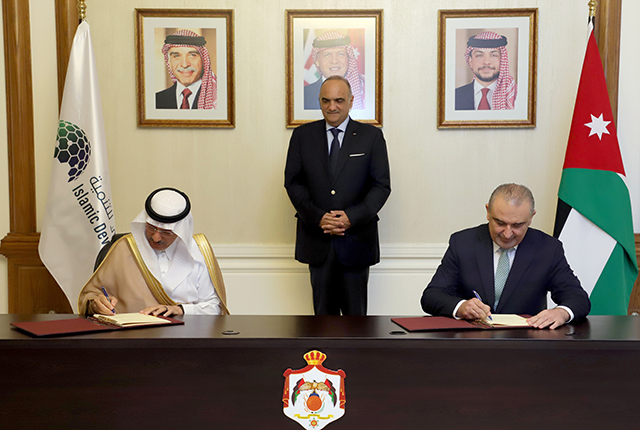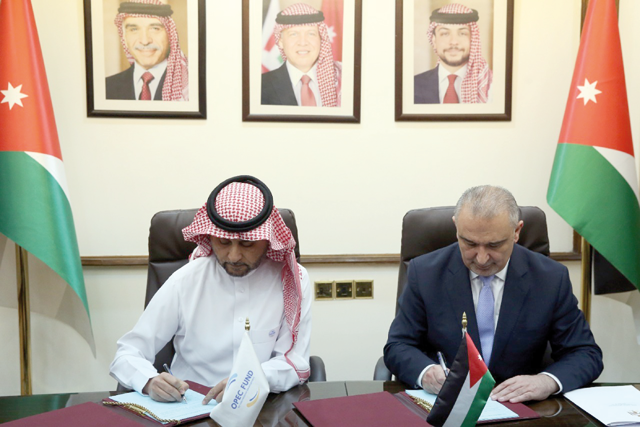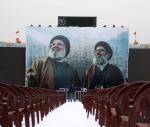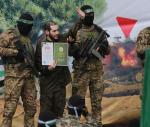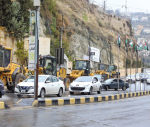You are here
Jordan’s ability to rein in inflation ‘a source of pride’ — PM
By JT - Dec 04,2022 - Last updated at Dec 04,2022
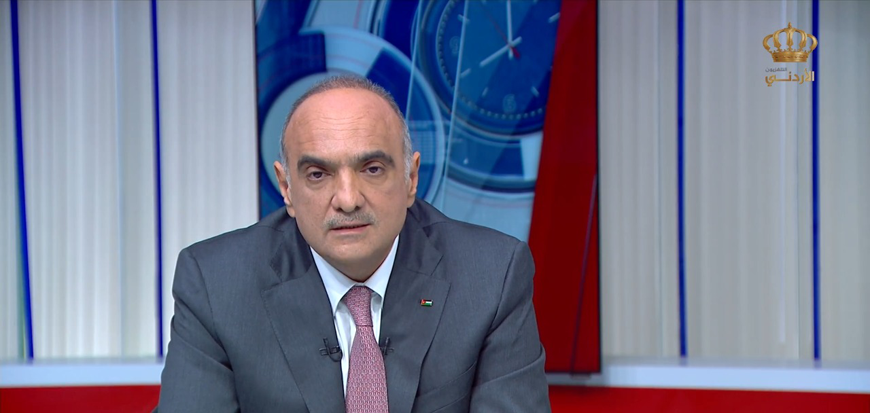
In this image grab, Prime Minister Bisher Khasawneh speaks during an interview with Jordan Television’s '60 Minutes', broadcast on Friday (Petra photo)
AMMAN — Prime Minister Bisher Khasawneh said that despite major economic challenges, Jordan's inflation rate remained within the 4 per cent range, far below that of European states or the US.
In an interview with Jordan Television’s "60 Minutes", broadcast on Friday, the prime minister said that the Kingdom’s ability to keep inflation under manageable rates, similar to those seen in rich countries, is “a source of pride", the Jordan News Agency, Petra, reported.
The premier said that the Kingdom has a comprehensive reform and modernisation project for the Jordanian state, which aims to improve many areas as well as the general quality of life. There are signs that the national economy has started to recover, such as Jordan’s 43 per cent increase in exports compared to last year, he said.
The tourism sector's revenue "exceeded expectations of the JD2.9 billion target", he said, noting that the sector is on the verge of achieving the baseline 2019 figure.
Foreign capital is “pouring” into the Kingdom, Khasawneh said, citing major Emirati projects in Aqaba and a hospital-medical university project being conducted in collaboration with the Saudi Public Investment Fund Company.
The prime minister disclosed that an Arab sovereign fund is “seriously” considering the construction of a railway line connecting Aqaba and the Madouneh region to the east of Amman. The government is currently awaiting a response from the fund before deciding whether to move forward with the project or offer it as a public investment opportunity, he added.
Regarding the International Monetary Fund's fifth review of the national economy's performance, the prime minister said that “it was not easy, but it succeeded", emphasising that the Kingdom's IMF-sponsored reform programme is built on “a solid foundation” and has clear-cut targets aimed at curbing tax avoidance and evasion and maximising public revenues.
The programme's primary objective is to support Jordan's effort to carry out structural reforms that the Kingdom sees as essential to achieving self-sufficiency, he added.
According to the prime minister, the rising costs of staple foods in the wake of the Russian-Ukrainian conflict and the Jordanian government's plan to keep strategic stocks of wheat, sufficient for over a year and a half, and barley, sufficient for more than 10 months, posed the greatest challenge in the country's fifth IMF review.
In April, the government made the strategic decision to keep buying wheat and barley to maintain the strategic stock, despite the fact that doing so resulted in a higher bill given the $517 price tag attached to a tonne of wheat. Additional purchases amounted to JD500 million, Khasawneh said.
These “high” ratings are evidence that Jordan's economy is being managed with “care and prudence”, and that reforms are being taken seriously to safeguard citizens and future generations from the greater dangers that would result from adopting "populist" policies, the prime minister said.
According to Khasawneh, the national currency is strong and stable, and that the exchange rate of the dinar has never been in doubt because of the sound financial policies implemented by the Ministry of Finance and the Central Bank of Jordan.
When asked about the proposed new city project, the prime minister said that the project had actually been initiated in 2017 under the government of former prime minister Hani Mulki, but had since become a lower priority for several reasons, including the COVID-19 pandemic.
However, the project is now back on the table, and a consulting firm submitted preliminary feasibility studies to the Cabinet a few weeks ago, Khasawneh said. The project will most likely be launched in 2025, with the first phase to be completed by 2033 and the second by 2050, accommodating 1 million people, he added.
According to the prime minister, "this ambitious project" is intended to establish a city within the boundaries of the capital, but will neither be a new nor alternative capital. It will be approximately 40 kilometres from the centre of Amman, 27 kilometres from Queen Alia International Airport and 32 kilometres from Zarqa, he noted.
Acknowledging that the tax burden in the Kingdom is “slightly high”, the prime minister said that "the current state of public finances does not allow for any [tax] reviews". However, Khasawneh indicated that his government has no plans to increase current taxes or to introduce new taxes.
Also during the interview, the prime minister stressed the government will continue bread subsidies despite the high prices of wheat that followed the Russian-Ukrainian crisis.
He noted that the bread subsidy is included in the draft general budget, with an allocation exceeding JD200 million.
Related Articles
AMMAN — The Ministry of Planning and International Cooperation and the Islamic Development Bank (IsDB) Group on Thursday signed two agreemen
AMMAN — Planning and International Cooperation Minister Nasser Shraideh and Director General of the OPEC Fund Abdulhamid Alkhalifa on Tuesda
AMMAN — The tense situation between Russia and Ukraine, “even in the event of a war between the countries, will not affect Jordan's fo


